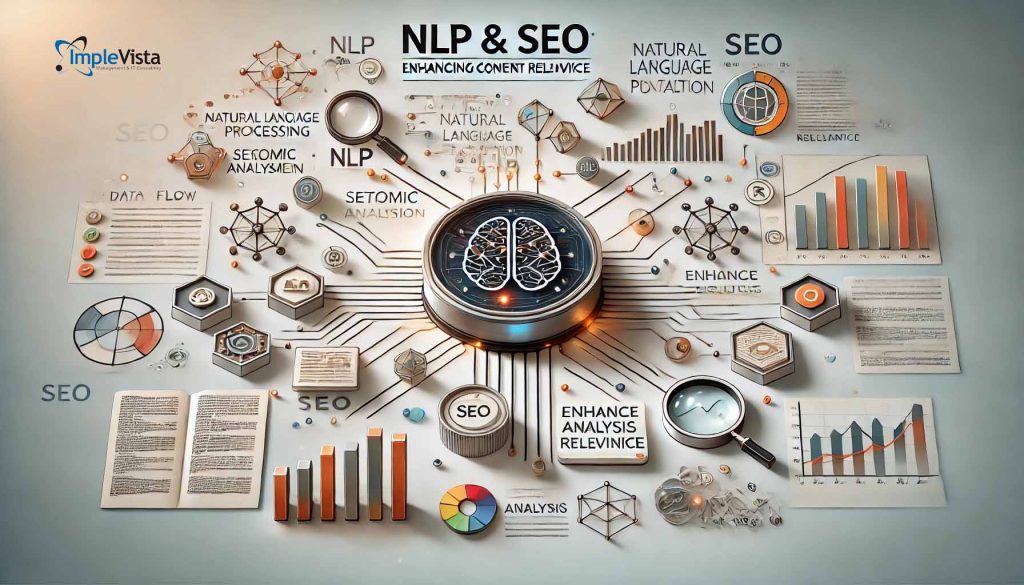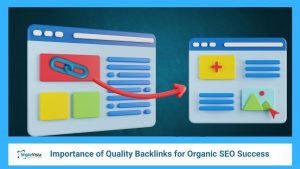In the digital age, where content is king and relevance reigns supreme, businesses are constantly on the hunt for innovative strategies to stand out in a crowded online landscape. Enter Natural Language Processing (NLP)—the cutting-edge technology that’s transforming how we understand and interact with language. As search engines evolve, they’re becoming increasingly adept at interpreting context, sentiment, and intent behind user queries. This means that your SEO efforts must adapt too! In this blog post, we’ll explore how harnessing NLP can elevate your content strategy to new heights by enhancing relevance and engagement. Get ready to dive into the fascinating intersection of language processing and search optimization—where data meets creativity for powerful results!
Introduction to NLP and SEO
The digital landscape is evolving, and so are the ways we connect with our audiences. As businesses strive to stand out in an oversaturated market, understanding how search engines interpret content has become paramount. Enter Natural Language Processing (NLP), a powerful tool that bridges the gap between human communication and machine understanding.
Imagine being able to create content that’s not only engaging but also finely tuned to what your audience is searching for. With NLP in SEO, you can do just that. This innovative technology allows marketers and content creators to enhance their strategies by making sense of language patterns, sentiment analysis, and even contextual relevance.
As we dive deeper into this topic, you’ll discover how NLP can revolutionize your approach to SEO. From improving keyword research processes to optimizing topics that resonate with your target demographics, the potential benefits are immense. Let’s explore how harnessing the power of advanced language processing can lead you down a path toward higher engagement rates and improved search engine rankings.
Understanding Natural Language Processing (NLP)
Natural Language Processing, or NLP, is a fascinating branch of artificial intelligence. It enables machines to understand and interpret human language in a meaningful way.
In the realm of SEO, NLP plays a crucial role. It helps search engines decipher user intent behind queries, making it easier for them to deliver relevant results. This understanding leads to improved search experiences.
NLP works by analyzing text through various algorithms and models that recognize patterns. These can range from simple keyword recognition to complex semantic analysis that captures context and nuance.
The applications are vast—from optimizing content for better visibility to enhancing voice search capabilities. As technology evolves, so does the potential of NLP in shaping how we interact with information online.
Definition and applications in SEO
Natural Language Processing, or NLP, refers to a branch of artificial intelligence that focuses on the interaction between computers and human language. It enables machines to understand, interpret, and generate human language in a meaningful way.
In the realm of SEO, NLP plays a crucial role. Search engines have evolved from simple keyword matching algorithms to complex systems that comprehend context and semantics. This shift allows them to deliver more relevant search results based on user intent rather than just specific keywords.
Applications of NLP in SEO are vast. For instance, it can enhance content creation by identifying related topics and phrases that resonate with target audiences. Additionally, it aids in optimizing meta descriptions and alt texts for images by ensuring they align closely with user queries.
By leveraging NLP techniques, marketers can create content that’s not only informative but also engaging—ultimately improving visibility on search engine results pages (SERPs).
How NLP works
Natural Language Processing (NLP) operates through a combination of algorithms and machine learning techniques. At its core, it interprets human language by breaking down sentences into manageable parts.
Tokenization is one key step, where text is divided into individual words or phrases. This allows machines to analyze each component separately.
Next comes part-of-speech tagging, which identifies the grammatical role of each token. Understanding if a word is a noun, verb, or adjective provides context essential for meaning.
NLP also employs semantic analysis to grasp nuances in meaning and intent. This helps search engines comprehend not just what users type but why they’re searching for it.
Through these complex interactions among various components, NLP enhances content comprehension and relevance across digital platforms. The ability to decipher natural language continues transforming how we interact with technology every day.
Importance of Content Relevance in SEO
Content relevance is at the heart of effective SEO. Search engines prioritize delivering the most pertinent information to users. When your content aligns closely with user intent, it enhances visibility.
Relevance goes beyond keywords; it’s about understanding what users truly seek. When your content answers their questions or solves problems, you increase engagement and dwell time on your site.
Additionally, search algorithms have evolved. They now analyze context rather than just matching phrases. This means high-quality, relevant content can significantly boost rankings.
Creating value for readers also fosters trust and authority in your niche. Readers are more likely to return when they find useful insights tailored to their needs.
Investing time in ensuring that your content resonates with target audiences isn’t just beneficial—it’s essential for standing out in a crowded digital landscape. Engaging material captures attention and drives organic traffic effectively over time.
How NLP helps improve content relevance
Natural Language Processing (NLP) revolutionizes how content is crafted and optimized. By analyzing the nuances of language, NLP helps identify user intent far beyond simple keyword matching.
When search engines understand context, they can deliver results that resonate with audience needs. This means content becomes more aligned with what users are truly searching for, enhancing relevance significantly.
NLP aids in extracting themes and sentiments from existing content. Marketers can refine their writing to match the emotional tone expected by target audiences. This tailored approach not only increases engagement but also fosters trust among readers.
Additionally, semantic analysis allows for a richer understanding of related terms and phrases. Writers can then create comprehensive pieces that cover topics thoroughly without unnecessary fluff or repetition.
The result? A seamless connection between what users seek and the information provided—leading to higher satisfaction rates across platforms.
Impact on search engine rankings
The impact of NLP on search engine rankings is significant. With advanced algorithms, search engines can understand context better than ever before.
This means that content relevance has taken center stage. Websites that utilize NLP techniques often see improved visibility in search results.
When content resonates with user intent, it leads to higher engagement rates. Metrics like time spent on a page and lower bounce rates signal quality to search engines.
Moreover, as NLP analyzes language patterns, it helps identify related terms and concepts that enhance keyword strategy. This allows for more nuanced optimization efforts beyond basic keyword stuffing.
As the digital landscape evolves, staying ahead requires adaptation to these technologies. Embracing NLP not only boosts rankings but also strengthens overall SEO strategies by aligning them with how users think and communicate online.
Techniques for Using NLP in SEO
Keyword research has evolved significantly with the advent of NLP in SEO. Traditional methods often relied on basic keyword lists. Now, advanced NLP tools can analyze user intent and context, providing more relevant keywords that resonate with target audiences.
Topic modeling is another invaluable technique. By using NLP algorithms, marketers can identify themes within large volumes of content. This ensures that articles align closely with what users are searching for, enhancing overall relevance.
Sentiment analysis offers a unique edge too. Understanding the emotional tone behind searches allows businesses to tailor their content effectively. Targeting specific sentiments helps connect better with different audience segments.
These techniques not only optimize content but also improve user experience across platforms, creating a seamless connection between search engines and valuable information. SEO agencies should use NLP SEO.
Keyword research with NLP tools
Keyword research is the backbone of any successful SEO strategy. With NLP tools, this process becomes more sophisticated and effective.
NLP algorithms analyze vast amounts of text data to uncover hidden keyword opportunities. They understand context, synonyms, and related terms that traditional methods might miss. This depth allows you to capture a wider audience searching for similar concepts.
By leveraging these advanced tools, marketers can identify not just high-volume keywords but also long-tail phrases that align with user intent. This means creating content that resonates deeply with your target audience.
Additionally, NLP tools often provide sentiment analysis on keywords. Knowing how users feel about certain terms enables you to refine your messaging for better engagement and conversion rates.
The result? A comprehensive keyword strategy grounded in real language usage rather than mere guesswork.
Topic modeling and content optimization
Topic modeling is a fascinating technique in NLP that helps you understand the themes present in your content. By analyzing large volumes of text, it identifies clusters of related ideas and concepts. This allows for better organization and strategic planning.
When applied to SEO, topic modeling guides content optimization efforts. Instead of just focusing on singular keywords, it encourages you to explore broader topics and subtopics relevant to your audience’s interests.
Creating content around these identified themes can significantly enhance relevance. Search engines favor comprehensive articles that thoroughly cover a subject matter while addressing user intent.
Moreover, by optimizing for grouped topics rather than isolated phrases, you increase the likelihood of ranking higher in search results. This approach not only elevates your visibility but also engages users more effectively, meeting their needs with well-rounded information.
Sentiment analysis for targeting specific audiences
Sentiment analysis is a powerful tool in the realm of NLP in SEO. It enables marketers to gauge how audiences feel about specific topics, brands, or products by analyzing online conversations and reviews.
By understanding sentiment trends, businesses can tailor their content to resonate with different audience segments. For instance, positive sentiments around a product can be leveraged in promotional campaigns. Negative feedback offers an opportunity for improvement and customer engagement.
This targeted approach enhances user experience and fosters brand loyalty. Crafting messages that align with audience emotions makes communication more effective.
Using sentiment analysis not only informs content strategy but also boosts search engine rankings. Search engines favor relevant, engaging content that meets user intent. By aligning your messaging with audience sentiment, you stand out in crowded digital spaces.
Case Studies: Successful Implementation of NLP in SEO
One notable case involves an e-commerce website that leveraged NLP to enhance its product descriptions. By analyzing customer reviews and competitor content, they identified key phrases and language patterns that resonated with their audience. As a result, the site improved its product listings significantly. This led to higher engagement rates and ultimately boosted sales.
Another interesting example is a blog focused on travel experiences. The team utilized NLP algorithms for topic modeling to identify trending subjects within their niche. By creating data-driven content tailored towards these topics, they increased organic traffic markedly while improving audience retention through relevant insights.
These instances highlight how implementing NLP can lead to substantial advancements in SEO strategies across various industries. Each success story reflects a deeper understanding of user intent and content optimization, making it possible to stay ahead in competitive landscapes.
E-commerce website using NLP for product descriptions
An e-commerce website recently transformed its product descriptions using NLP techniques. By leveraging advanced language processing, the site tailored each description to resonate with potential buyers effectively.
Instead of generic text that blended into the background, they generated unique content focusing on customer needs and preferences. This approach involved analyzing search queries and popular terms related to their products.
The results were remarkable; enhanced descriptions led to higher engagement rates and increased conversions. Customers found it easier to understand what was being offered, making informed purchasing decisions.
Additionally, by incorporating sentiment analysis, they could adjust tone based on seasonal trends or specific promotions. This adaptability kept their content fresh and relevant throughout the year. The strategic use of NLP not only improved clarity but also built a stronger connection between the brand and its audience.
Blog using NLP for topic targeting and audience engagement
A successful blog leveraging NLP can significantly enhance topic targeting and audience engagement. Imagine a lifestyle blog that uses advanced language processing to analyze trending topics within its niche. By harnessing NLP tools, the blog identifies what readers are searching for in real-time.
The process doesn’t stop at merely recognizing popular themes. It dives deeper into sentiment analysis to understand reader emotions about specific subjects. This insight allows the content creators to tailor posts that resonate with their audience’s feelings and interests.
For instance, if there’s a growing interest in sustainable living, the blog can produce articles focused on eco-friendly tips or product reviews aligned with this topic. Engaging headlines crafted from NLP insights draw readers in and encourage sharing across social media platforms, further amplifying reach and interaction. Such strategic use of language processing transforms content creation into a data-driven approach that connects more effectively with audiences.
Challenges and Limitations of Using NLP
Implementing NLP in SEO is not without its challenges. One major hurdle is the complexity of language itself. Natural language can be nuanced, filled with slang and idiomatic expressions that are difficult for algorithms to fully grasp. This complexity can lead to inaccuracies in understanding user intent.
Furthermore, while NLP tools offer sophisticated techniques for keyword research and content optimization, they often require a human touch to ensure relevance and tone align with target audiences. Over-reliance on automated systems might result in generic or off-brand messaging.
Another limitation lies in resource availability. High-quality NLP tools may demand significant investment, which could be prohibitive for smaller businesses or startups operating on tight budgets. Data privacy concerns also come into play; using AI-driven insights requires careful handling of user data to comply with regulations.
Lastly, staying ahead of ever-evolving search engine algorithms poses an ongoing challenge for marketers looking to use NLP effectively within their SEO strategies. Keeping pace with these changes requires continuous learning and adaptation.
Despite these obstacles, the potential benefits of incorporating NLP into SEO cannot be overlooked as it promises enhanced content relevance that resonates more deeply with users’ needs and preferences.
In conclusion, NLP and SEO go hand in hand when it comes to creating highly relevant and valuable content for your audience. By utilizing advanced language processing techniques, you can optimize your content to not only rank higher on search engines but also resonate with your target audience on a deeper level. Digital marketing agencies should use NLP into SEO. As technology continues to advance, incorporating NLP into SEO strategies will become increasingly important for businesses looking to stand out in the digital landscape. So why wait? Start implementing these techniques today and watch as your website’s traffic and engagement soar!










